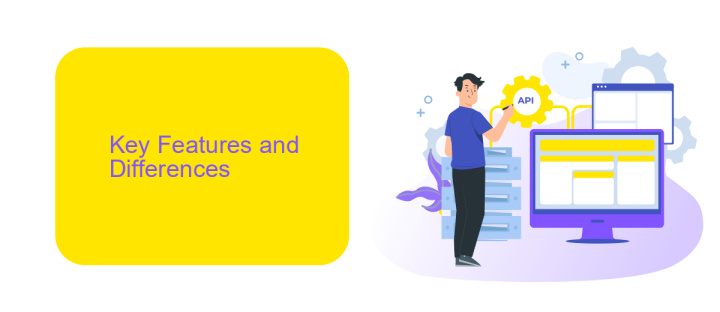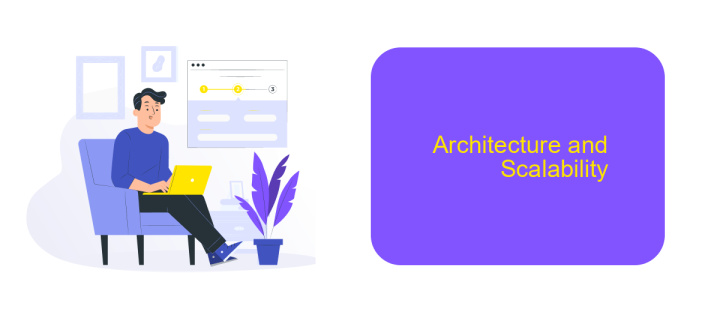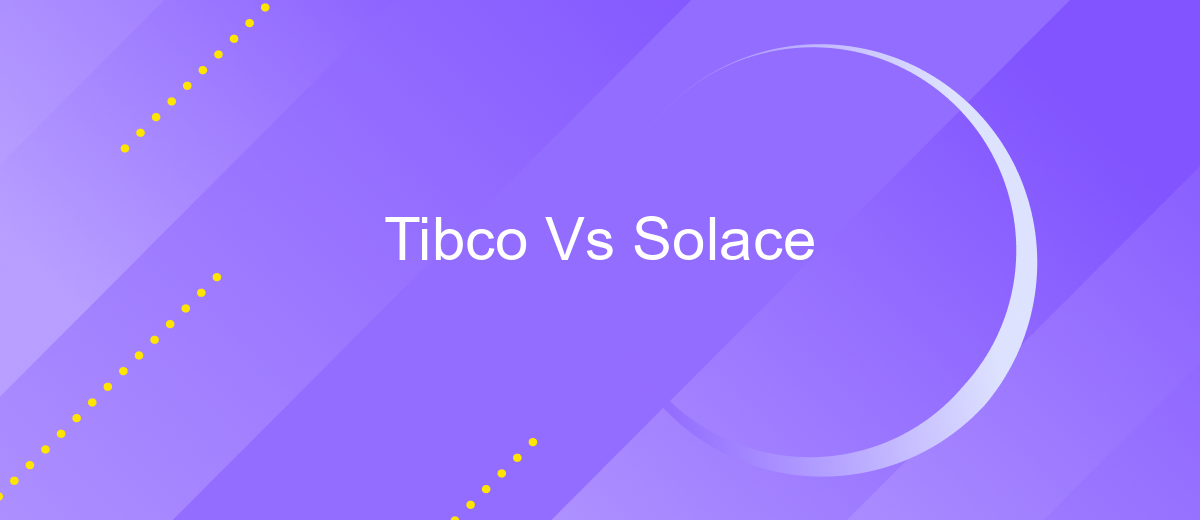Tibco Vs Solace
In the realm of enterprise messaging and data integration, Tibco and Solace stand out as leading solutions. Both platforms offer robust capabilities for real-time data distribution, event-driven architecture, and seamless communication across complex IT environments. This article delves into a comparative analysis of Tibco and Solace, examining their features, performance, and suitability for various business needs.
Introduction
In today's rapidly evolving digital landscape, businesses are increasingly relying on robust messaging and event streaming platforms to ensure seamless data integration and communication. Tibco and Solace are two leading players in this domain, offering comprehensive solutions to meet diverse enterprise needs. Both platforms provide powerful tools for real-time data distribution, event-driven architecture, and message brokering, making them essential for modern IT infrastructures.
- Tibco: Known for its strong focus on integration, Tibco offers a suite of products that facilitate real-time data exchange and analytics.
- Solace: Solace excels in event streaming and message brokering, providing a high-performance platform for real-time data movement.
Choosing between Tibco and Solace depends on various factors such as specific business requirements, existing IT infrastructure, and scalability needs. Additionally, services like ApiX-Drive can further enhance integration capabilities by automating data transfers and synchronizing applications, making the decision process easier and more efficient. Understanding the strengths and features of each platform is crucial for making an informed choice that aligns with your organizational goals.
Key Features and Differences

Tibco and Solace are both leading platforms in the realm of enterprise messaging and event streaming, but they have distinct features that set them apart. Tibco is renowned for its comprehensive integration capabilities, offering robust tools for data visualization, analytics, and business process management. Solace, on the other hand, excels in real-time data movement and event distribution, with a particular focus on high throughput and low latency. While Tibco provides a more extensive suite of integration solutions, Solace is often preferred for scenarios demanding rapid and efficient data transfer.
One of the key differences is their approach to cloud integration. Tibco offers a broad range of cloud services and supports hybrid environments, making it versatile for various deployment models. Solace emphasizes its event mesh architecture, which facilitates seamless data flow across distributed systems. For businesses looking to streamline their integration processes, services like ApiX-Drive can be invaluable. ApiX-Drive simplifies the connection between different systems and applications, enhancing the capabilities of both Tibco and Solace by providing an easy-to-use interface for setting up integrations without extensive coding knowledge.
Use Cases

When comparing Tibco and Solace, it's essential to consider their specific use cases to determine which platform best suits your needs. Both platforms excel in various scenarios, offering robust solutions for different industries and applications.
- Financial Services: Both Tibco and Solace are extensively used in financial services for real-time data processing, risk management, and trading systems. Their ability to handle high-frequency transactions makes them ideal for this sector.
- Telecommunications: In the telecom industry, these platforms support large-scale message brokering and real-time communication services. Solace, in particular, is known for its high throughput and low latency, making it a preferred choice.
- Healthcare: Real-time data integration and secure data exchange are critical in healthcare. Tibco provides comprehensive solutions for data analytics and patient management systems, ensuring compliance with industry regulations.
- Integration Services: For businesses looking to streamline their integrations, platforms like ApiX-Drive can be leveraged alongside Tibco and Solace. ApiX-Drive simplifies the process of connecting different applications, enhancing overall efficiency.
Ultimately, the choice between Tibco and Solace depends on your specific requirements and industry. Both platforms offer powerful capabilities, and when combined with integration services like ApiX-Drive, they can significantly enhance your operational efficiency and data management processes.
Architecture and Scalability

Tibco and Solace offer distinct approaches to architecture and scalability, each with unique strengths. Tibco utilizes a centralized architecture that relies on its Enterprise Service Bus (ESB) to manage communication between applications. This allows for a high degree of control and monitoring but can introduce a single point of failure if not properly managed.
Solace, on the other hand, employs a distributed architecture that leverages message brokers to facilitate communication. This approach enhances fault tolerance and scalability, as the workload is distributed across multiple nodes, reducing the risk of system-wide failures.
- Tibco: Centralized architecture, strong monitoring, potential single point of failure.
- Solace: Distributed architecture, enhanced fault tolerance, scalable across multiple nodes.
For organizations looking to streamline their integration processes, services like ApiX-Drive can be invaluable. ApiX-Drive simplifies the setup of integrations between various platforms, ensuring seamless communication and data flow. By leveraging such tools, businesses can enhance the scalability and efficiency of their Tibco or Solace implementations.
Pricing and Support
When it comes to pricing, TIBCO offers a flexible model that caters to both small and large enterprises. Their pricing is typically based on the number of users and the specific features required, making it scalable as your business grows. On the other hand, Solace provides a subscription-based pricing model, which can be more predictable for budgeting purposes. They offer various plans depending on the level of support and features you need, ensuring that you only pay for what you use.
In terms of support, both TIBCO and Solace offer comprehensive customer service. TIBCO provides 24/7 support with a dedicated team to assist with any issues, along with extensive documentation and community forums. Solace also offers round-the-clock support and has a robust knowledge base to help users troubleshoot common problems. For businesses looking to streamline their integration processes, services like ApiX-Drive can be a valuable addition, offering automated workflows and seamless integration capabilities to enhance both TIBCO and Solace platforms.


FAQ
What are the primary differences between Tibco and Solace?
Which platform is better for real-time event streaming?
How do Tibco and Solace handle scalability?
Are there any specific industries where Tibco or Solace is more commonly used?
How can I integrate Tibco or Solace with other applications and services?
Apix-Drive is a simple and efficient system connector that will help you automate routine tasks and optimize business processes. You can save time and money, direct these resources to more important purposes. Test ApiX-Drive and make sure that this tool will relieve your employees and after 5 minutes of settings your business will start working faster.

